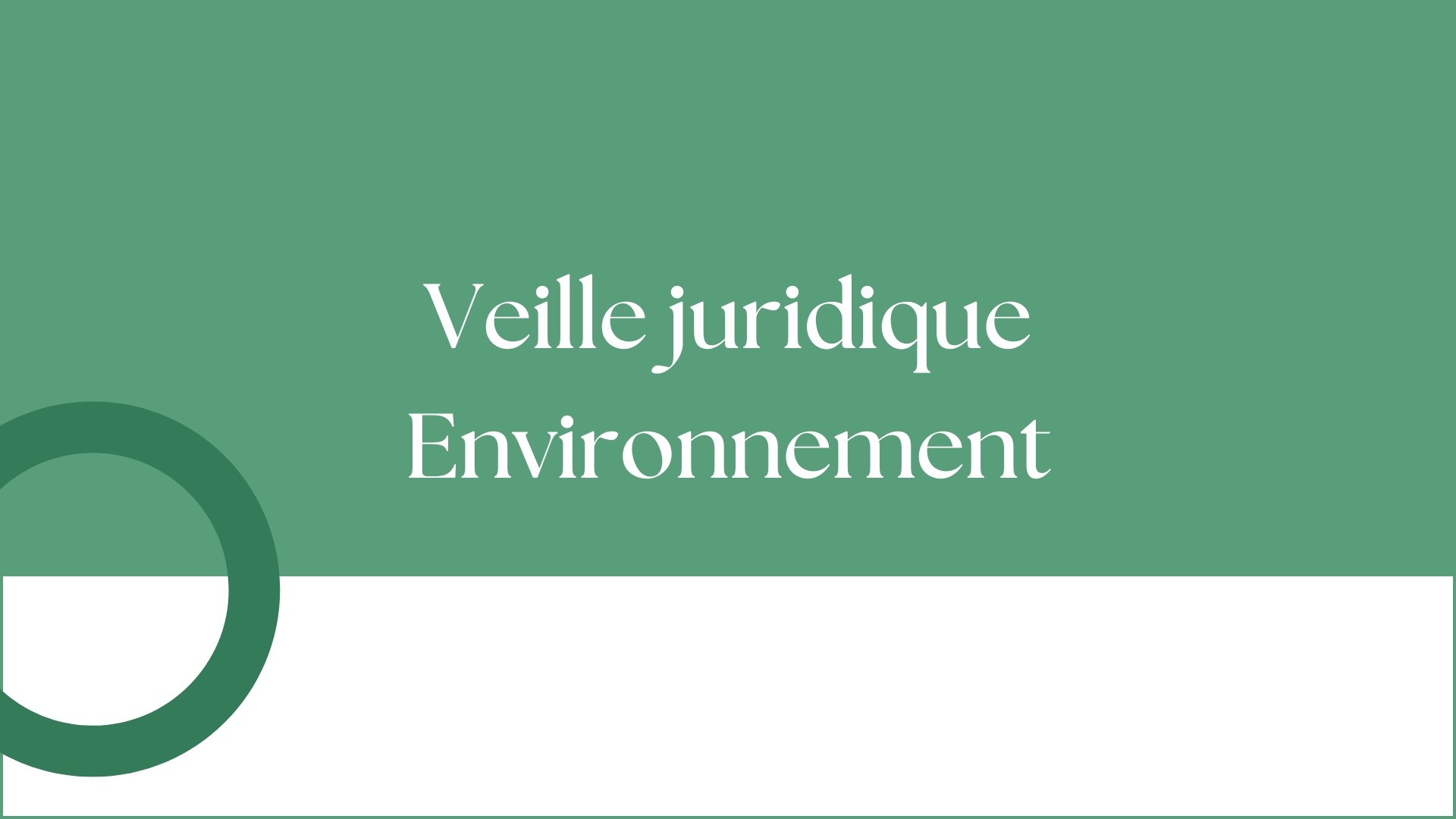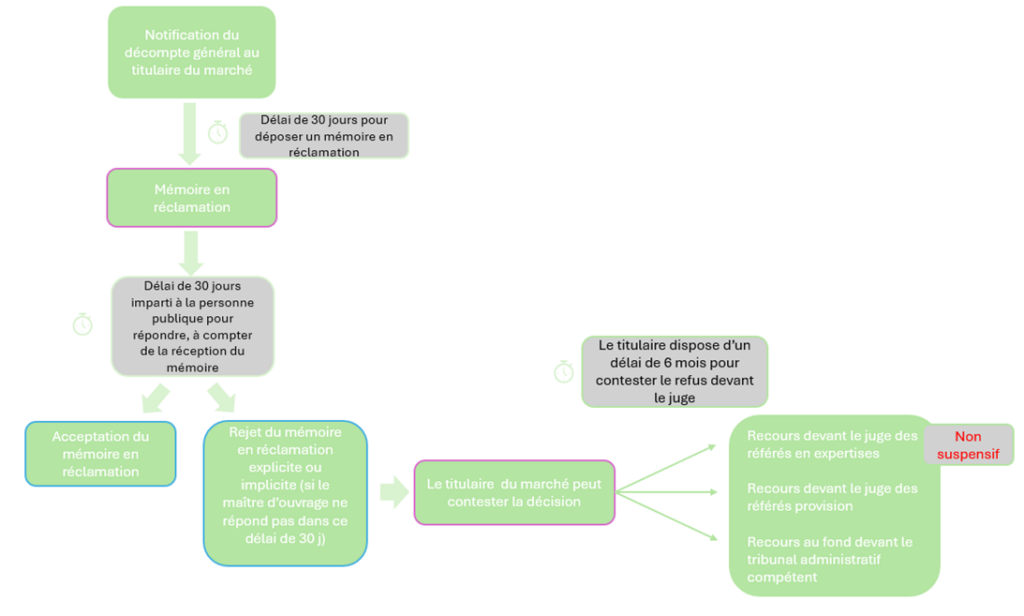Under the international trade law framework of the WTO, members can use anti-dumping, countervailing and safeguard measures to provide relief measures to domestic industries in cases where dumping, subsidies or excessive growth of imported products cause damage to domestic industries. Anti-dumping and countervailing measures target the unfair trade practices of dumping and subsidizing and correct the price discrimination of enterprises and the unfair competitive advantage gained by their export products due to subsidies by the government or public institutions; safeguard measures are emergency import restriction measures taken in response to import surges, and are “safety valves” for members to fulfill their obligations.
The Foreign Trade Law of the People’s Republic of China of 1994, for the first time, introduced the internationally recognized anti-dumping, countervailing and safeguard measures into China and made principal provisions. In 2001, the State Council reissued the Regulations of the People’s Republic of China on Anti-Dumping, the Regulations of the People’s Republic of China on Countervailing and the Regulations of the People’s Republic of China on Safeguard Measures. Under the framework of these three administrative regulations, MOFCOM has refined the enforcement process of trade remedy measures with more than twenty departmental regulations. One of the more recent amendments is the further refinement and revision of the Rules for Review of Dumping and Dumping Margins, the Rules for Anti-Dumping and Countervailing Hearings, and the Rules for Questionnaires in Anti-Dumping Investigations, which were made in 2018.
According to the WTO statistical methodology, since China’s accession to the WTO in 2001, until the end of 2023, China has launched a total of 285 anti-dumping investigations on imports from nearly 30 countries and regions; 17 countervailing investigations on imports; and 2 safeguard case investigations on imports.[1]
In general, trade remedies are not a common legal tool used by the Chinese government in dealing with international trade disputes. However, between 2023 and 2024, the EU’s countervailing investigations and eventual decision to impose duties on several major Chinese EV companies led to countermeasures by the Chinese government, including anti-dumping and countervailing investigations on products originating from the EU, such as brandy, pork and pig by-products, and dairy products. For EU companies, this unexpected geopolitical risk may become a normalized risk under the China-EU trade friction to a certain extent in the future. Therefore, understanding such legal tools and preparing to deal with them is also a risk prevention work that EU enterprises should pay attention to in their economic and trade exchanges with China.
1. Anti-dumping investigation
The Regulations of the People’s Republic of China on Anti-Dumping (amended in 2004, hereinafter the “Anti-dumping Regulations”) are the core document of China’s anti-dumping legal system. Further, the Anti-Dumping Questionnaire Investigation Rules (2018), Anti-Dumping and Countervailing Investigation Hearing Rules (2018), Anti-Dumping Industrial Damage Investigation Provisions (2003), Anti-Dumping Investigation Sampling Interim Rules (2002), Anti-Dumping Investigation Filing Interim Rules (2002), Anti-Dumping Investigation Field Verification Interim Rules, Interim Rules on Disclosure of Information in Anti-Dumping Investigations (2002) together constitute the rules for the conduct of anti-dumping investigations.
Substantive elements of anti-dumping investigations
Dumping: refers to the imports into the Chinese market at prices below their normal value (Article 2 Anti-dumping Regulations). Whether or not dumping exists depends on a comparison of “normal value” and export prices. Methods of determining normal value include the domestic market price in the exporting country, the price of exports to third countries, and the cost of production plus reasonable expenses and profits (Article 4 Anti-dumping Regulations). In the case of the EU as one market, the “domestic market price” of a product is the price within the EU market, i.e. the weighted average normal value within the EU as a whole. The export price of an imported product may be the price actually paid or payable, or the price at which the product is first resold to an independent purchaser (Article 5 Anti-dumping Regulations). The margin by which the export price of an imported product is lower than its normal value is the dumping margin (Article 6 Anti-dumping Regulations).
Injury: is where dumping causes substantial injury or threat of substantial injury to an established domestic industry or creates a substantial impediment to the establishment of a domestic industry (Article 7 Anti-dumping Regulations).
Procedures for anti-dumping investigations
Initiation: Anti-dumping investigations can be initiated either on an application basis or ex officio by the MOFCOM. In the case of an application, a written application for an anti-dumping investigation is usually submitted to the MOFCOM by the Chinese domestic industry or by a natural person, legal person or relevant organization on behalf of the domestic industry, and the investigation is formally initiated if the MOFCOM examines and decides to open a case (Articles 13 Anti-dumping Regulations). Before deciding to open an investigation, MOFCOM will notify the government of the exporting country concerned (Article 16 Anti-dumping Regulations).
Ways and means of investigation: The most conventional means of investigation used by the MOFCOM is the questionnaire survey. Although on-site verification is also one of the investigation methods stipulated in the law, the actual scenarios of its use are limited due to the difficulty of its operation. In cases where there are a large number of exporters under investigation, MOFCOM generally further reduces the investigation to a sample size. At the same time, MOFCOM is required to provide relevant stakeholders with the opportunity to present their views and arguments throughout the investigation process, and to hold hearings at specified investigation stages (Article 20 Anti-dumping Regulations).
Duration of the investigation: In terms of time, the investigation should be concluded within 12 months from the date of the announcement of the decision to open an investigation; it may be extended in exceptional circumstances, but the extension period should not exceed six months (Article 26 Anti-dumping Regulations). Under certain statutory circumstances, the investigation should be terminated. For example, (1) the applicant withdraws the application; (2) there is insufficient evidence to prove the existence of dumping, injury or a causal relationship between the two; (3) the dumping margin is less than 2%; (4) the actual or potential imports of the dumped imports or the injury is negligible; and (5) the MOFCOM deems that it is not appropriate to continue with the anti-dumping investigation (Article 27 Anti-dumping Regulations).
Handling of investigation results: Based on the results of the investigation, the MOFCOM shall make a preliminary ruling on whether dumping, damage and the causal relationship between the two are established and make a public announcement (Article 24 Anti-dumping Regulations). If the preliminary ruling determines that dumping, damage and the causal relationship between the two are established, the MOFCOM shall continue to investigate the dumping and dumping margin, damage and the extent of damage, and make a final ruling based on the investigation results, which shall be announced (Article 25 Anti-dumping Regulations).
Anti-dumping measures
After the preliminary ruling that dumping has been established and that injury has been caused to the domestic industry as a result, the anti-dumping measures can be taken, which include provisional anti-dumping measures, price undertakings and the imposition of anti-dumping duties.
Provisional anti-dumping measures: These include (1) the imposition of provisional anti-dumping duties; and (2) the requirement to provide a bond, guarantee or other form of security (Article 28 Anti-dumping Regulations). Provisional anti-dumping measures shall be imposed for a period not exceeding four months from the date of the announcement of the decision on provisional anti-dumping measures; in exceptional circumstances, this period may be extended to nine months (Article 30 Anti-dumping Regulations).
Price commitments: During the anti-dumping investigation and after the preliminary ruling is made, the exporting operator may make price commitments to the MOFCOM to change prices or stop exporting at dumped prices (Article 31 Anti-dumping Regulations). MOFCOM may propose price undertakings to the exporting operator but may not force the exporting operator to make price undertakings. If the MOFCOM considers that the price commitment made by the exporting operator is acceptable and in the public interest, it may decide to suspend or terminate the anti-dumping investigation, and not to take provisional anti-dumping measures or impose anti-dumping duties (Article 33 Anti-dumping Regulations).
Anti-dumping duties (“AD”): Anti-dumping duties may be imposed in cases where the final decision determines that dumping has been established and that this has caused injury to the domestic industry. The taxpayers of anti-dumping duties are the importing operators of dumped imports. Anti-dumping duties should be determined separately for different exporting operators based on their dumping margins (Articles 37, 40, 41 Anti-dumping Regulations).
The period for the imposition of anti-dumping duties and the period for the fulfillment of price undertakings shall not exceed five years; however, if it is determined upon review that termination of the imposition of anti-dumping duties is likely to result in the continuation or recurrence of dumping and injury, the period for the imposition of anti-dumping duties may be appropriately extended (Article 48 Anti-dumping Regulations).
MOFCOM review of investigation decisions and judicial review
Review means that after the entry into force of anti-dumping duties or after the entry into force of price undertakings, the MOFCOM may, depending on different situations, review the different aspects of the case, including the necessity of continuing to impose anti-dumping duties, at the request of an interested party or ex officio. There are several types of review, i.e. new exporter review (Article 47 Anti-dumping Regulations), interim review (Article 49 Anti-dumping Regulations) as well as sunset review (Article 48 Anti-dumping Regulations). Different reviews are carried out according to different procedures.
To be noted is that as administrative decisions made by the administration MOFCOM’s decisions are subject to judicial review in accordance with the administrative reconsideration procedure and the administrative litigation procedure. Those judicially reviewable decisions include the decision on whether to impose anti-dumping duties and the decision on retroactive collection, refund or collection from new exporters, decisions concerning the retention, modification or cancellation of anti-dumping duties and price undertakings etc. (Article 53 Anti-dumping Regulations).
2. Countervailing investigation
The Countervailing Regulations of the People’s Republic of China (revised in 2004, hereinafter the “Countervailing Regulations”) are the core document of China’s countervailing legal system. Further, the Interim Rules for Countervailing Questionnaire Investigation (2003), Rules for Hearings on Antidumping and Countervailing Investigations (2018), the Provisions on Countervailing Industrial Damage Investigation (2003), the Interim Rules for Filing Countervailing Investigations (2002), and the Interim Rules for Field Verification of Countervailing Investigations (2002) together build the countervailing investigation system. The legal regime for the conduct of countervailing investigations and measures is very similar to that of anti-dumping. The main difference lies in the targeting of irregular trade practices, i.e. transitional subsidies in the exporting country.
Substantive elements of countervailing investigations
The competent authority may investigate and take countervailing measures if the imported product is subsidized and causes substantial injury or threat of substantial injury to an established domestic industry or creates a substantial impediment to the establishment of a domestic industry (Article 2 Countervailing Regulations).
Subsidies are financial assistance and any form of income or price support provided by the government of the exporting country (region) or any of its public agencies that provides a benefit to the recipient. Financial support may include: (i) direct funding by the exporting government in the form of grants, loans, capital injections, etc., or potential direct transfer of funds or debt in the form of loan guarantees, etc.; (ii) waiver or non-collection of revenues receivable by the exporting government; (iii) provision by the exporting government of goods or services other than general infrastructure, or purchase of goods by the exporting country (region) government; (iv) the government of the exporting country performing the above functions through payments to financing institutions, or by entrusting or directing private institutions (Article 3 Countervailing Regulations). At the same time the subsidies must be of a specific nature, i.e., subsidies received by certain enterprises or industries that are clearly defined by the government of the exporting country or by local law (Article 4 Countervailing Regulations).
For example, in the countervailing investigation initiated by the MOFCOM on August 21, 2024 against imports of relevant dairy products originating in the European Union (EU), the MOFCOM decided to investigate 20 subsidy programs, which include subsidy programs under the EU’s Common Agricultural Policy, such as voluntary linked subsidies and income-linked subsidies, the Basic Payment Scheme and the Sustainable Basic Income Subsidy; and subsidy programs of individual EU member states, such as Ireland’s Dairy Equipment Subsidy Program, Austria’s Mobility Subsidy Program, and Italy’s Dairy Logistics Subsidy etc..[2]
Injury means that the subsidy causes or threatens to cause substantial damage to an established domestic industry or creates a substantial obstacle to the establishment of a domestic industry. This includes the impact that the subsidy may have on trade; whether the absolute quantity of subsidized imports or the quantity of subsidized imports relative to the quantity of domestic production or consumption of similar products has increased substantially; the price of subsidized imports has had a substantial depressing effect on the price of domestic products of the same kind; and the impact of subsidized imports on the relevant economic factors and indicators of the domestic industry, and so on (Articles 7, 8 Countervailing Regulations).
Procedures for countervailing investigations
Initiation: Countervailing investigations may be initiated upon application or ex officio by the MOFCOM. In the case of an application, a written application for a countervailing investigation is usually submitted to the MOFCOM by the Chinese domestic industry or by a natural person, legal person or relevant organization on behalf of the domestic industry, and the investigation is formally initiated if the MOFCOM examines and decides to file a case. Before deciding to initiate an investigation, MOFCOM will notify the government of the exporting country concerned (Articles 13, 16 Countervailing Regulations).
Ways and means of investigation: Similar to anti-dumping investigations, the most conventional means of investigation used by MOFCOM in countervailing cases is the questionnaire survey. At the same time, MOFCOM is required to provide relevant stakeholders with the opportunity to present their views and arguments throughout the investigation process, and to hold hearings at specified investigation stages. Since the subsidies themselves are governmental acts, consultations between the two governments throughout the investigation process are key to determining the direction of the case (Articles 20, 24 Countervailing Regulations).
Duration of the investigation: In terms of time, the investigation should be concluded within 12 months from the date of the announcement of the decision to open an investigation; it may be extended in exceptional circumstances, but the extension period should not exceed six months (Article 27 Countervailing Regulations). In certain statutory circumstances, the investigation should be terminated, for instance, where agreement is reached through consultations with the government of the country (region) concerned that there is no need to continue the countervailing investigation (Article 28 Countervailing Regulations).
Handling of investigation results: Based on the results of the investigation, the MOFCOM shall make a preliminary ruling on whether subsidies, damages and the causal relationship between the two are established and make a public announcement. If the preliminary ruling determines that the subsidy, damage and causal relationship between the two are established, the MOFCOM shall continue to investigate the subsidy and the amount of the subsidy, and the damage and the extent of the damage, and make a final ruling based on the results of the investigation, which shall be announced (Articles 25, 26 Countervailing Regulations).
Countervailing measures
After the preliminary ruling, measures can be taken are: provisional countervailing measures, undertakings and the imposition of countervailing duties.
Provisional countervailing measures: Take the form of the imposition of provisional countervailing duties secured by a bond or guarantee. The period of implementation of provisional countervailing measures shall not exceed four months from the date of implementation specified in the announcement of the decision on provisional countervailing measures (Article 29 Countervailing Regulations).
Commitment: During the countervailing investigation and after the preliminary ruling is made, the MOFCOM may accept the commitment of the government of the exporting country (region) to abolish or restrict subsidies or other relevant measures, or the commitment of the exporting operator to modify prices and decide to suspend or terminate the investigation (Article 32 Countervailing Regulations).
Countervailing duties (“CVD”): Countervailing duties may be levied where the final decision determines that a subsidy has been established and that this has caused damage to the domestic industry. The taxpayer of countervailing duty is the importing operator of the subsidized imported product. Countervailing duties should be determined separately according to the amount of subsidy for different export operators (Articles 38, 41, 42 Countervailing Regulations).
The period for the collection of countervailing duties and the period for the fulfillment of commitments shall not exceed five years; however, the period for the collection of countervailing duties may be appropriately extended if it is determined on review that the termination of the countervailing duties is likely to result in the continuation or reoccurrence of the subsidy and the injury (Article 47 Countervailing Regulations).
MOFCOM review of investigation decisions and judicial review
The MOFCOM review and judicial review of the investigation decisions is similar to that of the anti-dumping cases.
3. Safeguard
The Regulations of the People’s Republic of China on Safeguard Measures (as amended in 2004) define the conditions, procedures and content of measures for the application of safeguard measures. China seldom uses safeguard measures as a politicized legal tool, because it restricts the quantity of imported products without distinguishing among countries.
Safeguard measures can be applied if the quantity of imported products increases and causes serious damage or the threat of serious damage to the domestic industry producing the same type of products. Safeguard measures take the form of tariff increases, quantitative restrictions and so on. Where the adoption of quantitative restriction measures requires the allocation of quantities among the exporting countries concerned, the MOFCOM may hold consultations with the exporting countries concerned on the allocation of quantities.
One of the latest safeguard cases is the announcement by the MOFCOM of a safeguard investigation on imported beef from December 27, 2024.[3] The reason for this is that China’s beef imports have increased by 65% between 2019 and 2023, with imports in the first half of 2024 reaching more than double the amount in the first half of 2019. Under the impact of imported products, the domestic industry suffered serious damage. The MOFCOM opened an investigation into it in line with Chinese legal provisions and WTO rules.
Legal risks of trade remedies for EU companies
According to the EU’s data statistics, during the more than two decades from 2003-2024, the EU initiated about 157 anti-dumping, countervailing and safeguard investigations against China, accounting for nearly half of all relevant EU investigations in the same period. In 2023, of the 12 new investigations initiated by the EU (10 anti-dumping and 2 countervailing), 9 were against Chinese companies, accounting for 75% of the total[4] . It is conceivable that Chinese companies have already had some experience in dealing with EU investigations. On the other hand, the number of investigations initiated by China against EU companies is relatively low, and the annual number of new cases is in the small single digits. Therefore, it can be said that EU companies are not familiar with China’s trade remedy measures and thus are not able to respond effectively to the related risks. However, increased trade friction requires companies to be prepared and able to respond to such risks at all times.
Our observation from our experience of representing clients in responding to relevant investigations shows that the first thing EU enterprises need to do is to formulate a response strategy; the first question to be answered is whether the enterprise should respond to the investigation. In general, there are two types of enterprises. One is the enterprises with large export volume to China or other investments, such as subsidiaries set up in China; one is the enterprises with small export volume. For the former, responding positively to the investigation to obtain a favorable AD/CVD rate is an unquestionable choice. For the latter, the decision to respond is a matter of weighing the trade-offs between the final rate of duty likely to be applied, the cost of responding, and the profitability of future sales.
Further, no matter which type of enterprises, responding to the lawsuit or not, they need to be clear about the basic principle of tax rate application. On this core issue, the provisions of Chinese law are basically similar to those of other countries. Generally speaking, there may be three kinds of tax rates. First, for enterprises that choose to respond to the investigation and cooperate with the authority, especially those sampled enterprises, each responding enterprise may obtain a separate tax rate. The second type of rate is for enterprises that participate in the response but are not chosen as sample of the investigation. These enterprises generally receive a weighted average of the tax rates received by the sampled enterprises. The third rate applies to all enterprises that have not responded. In this case, the authorities apply the best information available rule (BIA rule) to determine a rate that is usually the highest.
For example, in the most highly publicized anti-dumping investigation of 2024, the investigation of imports of relevant brandy originating in the European Union, under the currently established provisional measures (the duration of the investigation in this case has been extended to April 5, 2025, according to the announcement issued by the MOFCOM on December 25, 2024), with respect to the margin (which is also directly related to the anti-dumping duty rate that may be applied in the future) the three sampled companies will receive their respective rate, i.e. Martell & Co – 30.6%; Jas Hennessy & Co – 39.0%, E. REMY MARTIN & C° – 38.1%. For other companies that cooperated with the investigation, the rate was 34.8% and for other EU companies, 39.0%.[5]
For enterprises, after understanding this basic principle of operation, the more recommended way of dealing with the matter is to respond actively to and participate in the investigation in the first place in any case. Enterprises are advised to cooperate at the initial stage of the investigation in answering the questionnaire of the competent authority, the content of which is usually not complicated. It usually covers the structure of the enterprise, management information, basic sales information and production cost information. If, after this round of responses, the enterprise is not selected for sampling, there is basically not much work to be done, and the enterprise can, as a “free-rider”, wait for a weighted average tax rate. If the enterprise is selected as a sampled enterprise, then the work to cooperate with the investigation will be greatly increased. The enterprise will need to provide very detailed information on various aspects of procurement, production and sales. The advantage is that the sampled enterprises will obtain a separate tax rate, which, generally speaking, is more in line with the actual situation of the enterprises. Also, the sampled enterprises are in constant communication with the authorities and have a better chance to clarify issues and take the initiative.
In conclusion, European enterprises with trade with China, especially those in industries that may receive government subsidies in their operations, should pay active attention to the trade friction between China and the EU, and anticipate the possibility of China’s countermeasures against some of the EU’s trade measures. Once such a possibility arises, they should closely follow the relevant developments through their industry associations and be prepared to respond.
Concluding remarks
With the re-election of Donald Trump as President of the United States, the process of globalization will face new challenges in 2025 and in the foreseeable future. The conservative strategy of “America first” will lead to an increase in international trade barriers and a decrease in the stability and efficiency of global supply chains. In addition, such a policy orientation could trigger trade retaliation by other countries, thereby triggering an escalation of global trade tensions and further impeding the synergistic development of the global economy. In such an international environment, European companies operating in and with China need to be aware of the legal risks associated with geopolitical risks. Sanctions, export controls, and trade remedy measures described in this paper are all new types of risks that enterprises need to pay close attention to in their operations in and with China.
At the end of 2024, we saw China’s State Administration for Market Regulation (SAMR) announce an antitrust investigation of NVIDIA Corporation.[6] The investigation was prompted by NVIDIA’s alleged violations of the Anti-Monopoly Law of the People’s Republic of China and the additional restrictive undertakings it made in its 2020 acquisition of Mylos Technology Co. Specifically, when NVIDIA acquired Mylos in 2020, it had promised to continue to supply the relevant products fairly in the Chinese market in order to obtain antitrust approval. However, since 2022, NVIDIA has repeatedly cut off the supply of GPU products to the Chinese market, which is considered a serious breach of its commitment. Under the Anti-Monopoly Law, NVIDIA could face fines of up to 10% of its previous year’s sales.
On December 5, 2024, the Chinese Ministry of Finance (MOF) released the Domestic Product Standards and Implementation Policy for public comment.[7] The draft is intended to establish a definition of “domestic products” for government procurement. Domestic products are given up to 20% preference in government procurement. In addition, newly introduced government procurement policy measures for technology products, including computers, operating systems, and semiconductors,[8] cite “security and reliability” as a reason for reducing purchases from U.S. and other foreign companies, even if the products are produced by their subsidiaries established in China.
All of the above shows that the Chinese government is still adapting and refining its legal tools. European companies operating in China must dynamically monitor their risks and develop countermeasures to better position themselves and avoid being caught in the crossfire of today’s geopolitical frictions.
[1] https://i-tip.wto.org/goods/Forms/MemberView.aspx?mode=modify&action=search
[2] https://trb.mofcom.gov.cn/myjjdc/art/2024/art_77edd59bb5a94b76b349a4c0ad46f4c8.html
[3] https://www.mofcom.gov.cn/zwgk/zcfb/art/2024/art_8387c10eb4ac462cbddc02e5bb259767.html
[4] Forty-second Annual Report on EU Anti-Dumping, Countervailing and Safeguard Measures Activities and the Use of Trade Protection Instruments by Third Countries against the EU, 2023.
[5] https://www.mofcom.gov.cn/zwgk/zcfb/art/2024/art_e0985682da084c70884d7e6a2848f4f9.html
[6] https://www.samr.gov.cn/xw/zj/art/2024/art_ed4d3090401741a0894e475d35db652b.html
[7] https://www.ccgp.gov.cn/zcfg/mof/202412/t20241205_23798042.htm
[8] Desktop Computer Government Procurement Standards (2023 ed.), Portable Computer Government Procurement Standards (2023 ed.), and General Server Government Procurement Standards (2023 ed.).















